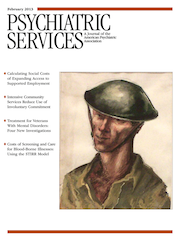Impact of the Great East Japan Earthquake on Caregiver Burden: A Cross-Sectional Study
Abstract
Objective
After the great East Japan earthquake of 2011, residents with intellectual disabilities and their caregivers in Fukushima were evacuated to the prefecture of Chiba. We investigated the impact of the earthquake on the caregivers’ burden.
Methods
Between August 2011 and January 2012, 46 caregivers evacuated from Fukushima and 46 caregivers at similar facilities in Chiba who were not forced to evacuate completed a survey including the 12-item General Health Questionnaire (GHQ-12) and additional questions. A logistic regression analysis and median tests were performed.
Results
The evacuation was linked to GHQ-12 global scores ≥3, indicating psychiatric morbidity (relative risk [RR]=2.81), as well as to scores ≥8, indicating a more severe condition (RR=3.57). There was a trend for evacuated caregivers to have more social dysfunction than psychological distress.
Conclusions
A statistically significant difference in emotional stress was observed among caregivers who were forced to evacuate after the earthquake.



